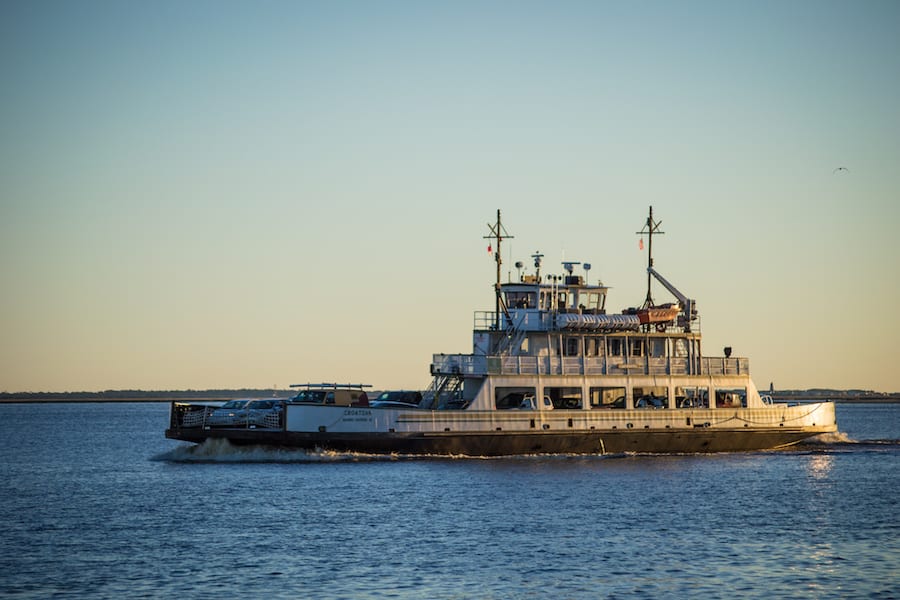NYC Ferry’s Hornblower Taps Niagara Falls Assets for Cash
By Claire Boston and Katherine Doherty (Bloomberg) –The operator of the cash-strapped NYC Ferry system has lined up $90 million of financing to help keep its tourist boats and commuter...

Photo courtesy North Carolina Ferry System
The U.S. Department of Transportation has designated the North Carolina Ferry System (NCFS) as a Marine Highway Project, a first for the state of North Carolina.
Marine highways are navigable waterways that can be used as alternate options to traditional transportation methods and opens up opportunities for federal funding.
“This historic designation will enhance the ability of the North Carolina Ferry System to connect communities and promote economic growth with an efficient, effective, and sustainable water-based transportation option,” said U.S. Transportation Secretary Elaine L. Chao, who announced the designation on Thursday.
The designation was issued as part of MARAD’s America’s Marine Highway Program, which will enable the NCFS to apply for federal funding that can be used to modernize its vessels and improve infrastructure at terminals.
“America’s Marine Highway Program bolsters local economies by creating and preserving jobs on U.S. waterways. By expanding the use of navigable, cost-effective waterways, communities are able to save in vehicle costs and travel time, ultimately improving economic efficiency, public safety, and security,” the U.S. Maritime Administration said in a statement.
Located on the M-95 Marine Highway route, the NCFS is an expansive network of navigable waterways that connects eastern North Carolina to rural communities of the Outer Banks’ barrier islands. The ferry system serves as a lifeline, carrying supplies, equipment, and other consumable goods to these islands.
“This century-old, state-run ferry system is the second largest in the nation, currently transporting approximately 800,000 vehicles along seven regular routes annually,” according to MARAD. “Running 22 ferries that transport 9,000 trailer trucks yearly, the NCFS has reduced almost 200,000 miles of landside traffic. The service is also an economic boon to the region, generating $18.1 million in vehicle cost savings, $13.9 million in travel time savings, and $8.3 million in safety benefits.”

Sign up for gCaptain’s newsletter and never miss an update

Subscribe to gCaptain Daily and stay informed with the latest global maritime and offshore news
Essential news coupled with the finest maritime content sourced from across the globe.
Sign Up